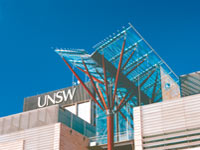|
 |
|
 |
| |
| |
| |
| |
| |
| |
| |
Campus: Kensington Campus
| |
| |
Career: Postgraduate
| |
| |
Units of Credit: 6
| |
| |
| |
| |
Indicative Contact Hours per Week: 2
| |
| |
Enrolment Requirements:
| |
| |
Pre-requisite: Academic Program must be 9200 or 9210 or 9230 or 5740 or 9220 or 5750.
| |
| |
Excluded: JURD7429
| |
| |
| |
| |
| |
| |
| |
 |
|
 |
Description
This course focuses on current issues surrounding the regulation of digital media, including digital television and radio, mobile communications and the internet. It includes a comparative analysis of regulation governing access to digital communications infrastructure and the regulation of digital content and digital content navigation systems. The course also focuses on the various socio-legal perspectives on digital media and regulatory issues.
LLM Specialisations
Recommended Prior Knowledge
None
Course Objectives
A candidate who has successfully completed this course should:
- Have an understanding of a variety of digital communications technologies and how they are regulated
- Understand regulatory issues resulting from the digitisation and convergence of mainstream media and communications platforms
- Engage with and critically evaluate policy debates and responses surrounding the regulation of digital media technologies
- Engage with the academic literature on the regulation of digital communications technologies.
Main Topics
- Regulatory policy-making in the digital communications environment
- Transition to digital television and radio, both in Australia and internationally
- Digitisation and the future of public service broadcasting: Australia and UK comparison
- Regulation of mobile and internet media
- New media markets and competition issues
- Interoperability and standard-setting in the digital environment
Assessment
| Class participation |
(Preparation and engagement in class) |
20% |
| Research essay |
(6,000 words) |
80% |
Course Texts
- Des Butler and Sharon Rodrick, Australian Media Law (Pyrmont: Lawbook Co, 3rd ed 2007)
- Jock Given, Turning off the Television: Broadcasting’s Uncertain Future (Sydney: UNSW Press, 2003)
- Hernan Galperin, New Television, Old Politics: The Transition to Digital TV in the United States and Britain (Cambridge: Cambridge University Press, 2004)
- Michael Starks, Switching to Digital Television: UK Public Policy and the Market (Bristol: Intellect Books, 2007)
- Andrew T. Kenyon (ed), TV Futures: Digital Television Policy in Australia (Carlton: Melbourne University Press, 2007)
- Andrew Murray, The Regulation of Cyberspace (Abingdon: Routledge-Cavendish, 2007).
Resources
Please refer to the course outline.
|



